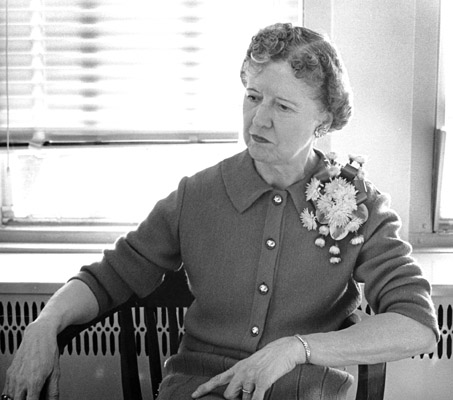

Highlights
Celebrate Women's History Month

Pauline Newman was born in Lithuania around 1890 and came to the United States in 1901 with her mother and sisters after the death of her father. Shortly after her arrival, she went to work to help support her family. After working in various factories, Newman became employed at the Triangle Shirtwaist Co. Newman was involved in the 1909 Shirtwaist Makers’ Strike and following the strike, became the first woman organizer for the ILGWU, traveling through the Midwest and Northeast. By the time of the 1911 Triangle Fire, she was no longer employed at the factory, but many of her former coworkers perished in the fire and Newman marked the anniversary of the tragedy every year. In 1914, she served on the Joint Board of Sanitary Control in New York City, which was a combined trade union and manufacturers’ unit designed to establish standards for maintaining sanitary conditions in the shops. From 1918 to her retirement, Newman was the director of education for the Union Health Center. As health educator, she arranged for lectures and programs, created an innovative preventive health care program, and served as a liaison between the medical staff and the local unions. Newman often spoke on behalf of workers’ health care before city, state and federal government panels.
Additionally, Newman was a member and officer of numerous labor and civic organizations, including the Women’s Trade Union League, United Nations Commission on the Status of Women, the advisory committee of the U.S. Department of Labor’s Women’s Bureau, the New York State Commission on enforcing equal pay law, and the New York State Department of Labor’s Minimum Wage Board. She died in 1986 at the age of 96.
Learn more about Pauline Newman in the archvies and read her autobiography: 6036/008


